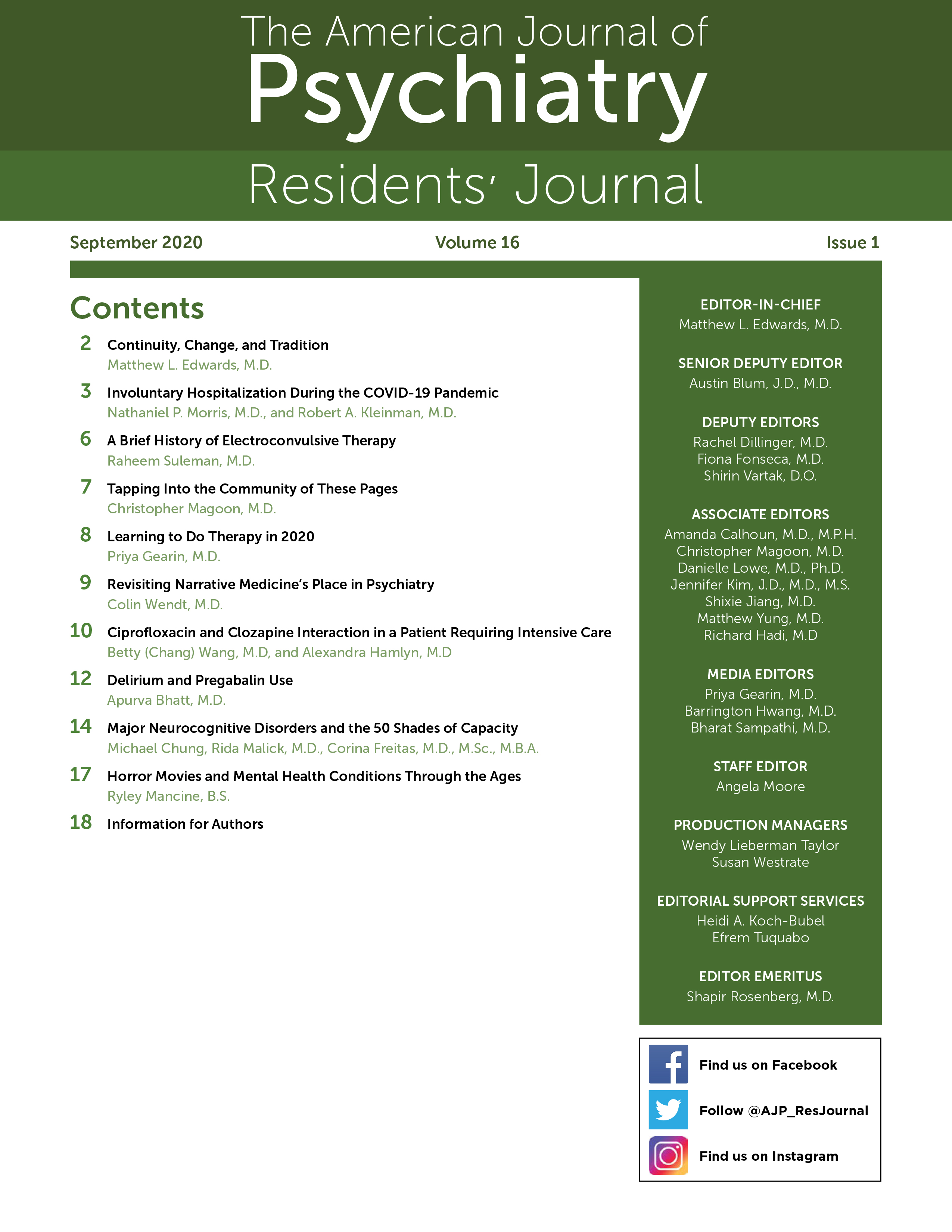As a psychiatry resident, I often arrive home after a day in the hospital with a chief complaint almost universally felt by psychiatric trainees: emotional fatigue. Hearing stories of immense suffering, trauma, and emotional despair during my workday kicks my limbic system into overdrive, making it difficult to slow to an appropriate speed as I walk out the hospital doors. To lift the affective veil placed by my clinical duties, I often find myself sitting down with a pen and paper, writing late into the evening.
From an early age, I have loved to write. This passion started in high school and continued through my undergraduate training. As I entered psychiatry residency, a field of medicine deeply rooted in personal narrative, it seemed like a natural step to continue this storytelling hobby. Yet, as I sat down early in my training to begin the writing process, I was suddenly overcome with a wave of doubt. If I ask my patients’ permission to write down their stories, how will this affect our relationship? Should I instead write about my own journey as a medical trainee? Should I even start doing this?
Narrative medicine plays an integral role in modern medicine. Today, some of the most prominent medical journals include narrative medicine segments. These segments allow clinicians to focus on the human qualities of the trade and to describe their own triumphs and hardships in navigating this terrain. In doing so, they offer a creative modality for sharing insights into the human condition.
At its core, narrative medicine tells the stories of the patient-provider dyad. As such, narrative medicine pieces can be subclassified by the author’s focus in this dyad. Some authors focus on telling their patient’s story in this dyad, while others take a provider-centered approach. Both patient- and provider-centered narrative medicine pieces offer important insights that help derive meaning from the underlying stories in which the medical profession is steeped.
Patient- and provider-centered narrative medicine has shaped the field of psychiatry since its beginnings. In its least creative modality, case reports represent a type of narrative writing that tell patients’ stories and highlight specific psychopathology. Many prominent writers in psychiatry have interwoven this foundational patient-centered narrative through skillful writing. For example, most of Oliver Sacks’ texts follow this principle, describing core topics in neuropsychiatry through the lens of an expert storyteller diving into the personal narratives of his patients. Others maintain a provider-centered reference frame. Irvin Yalom, for example, wrote of his inner monologue during patient encounters to describe his growth as a therapist and psychiatrist.
When choosing a patient-centered narrative medicine approach, psychiatrists are faced with additional complexity. Psychiatrists are exposed to some of the most personal stories told by patients. With this comes an immense responsibility to maintain these narratives within the therapeutic relationship. Although no medical field is readily disclosing patient information without first gaining permission, for psychiatry, even asking permission of patients to share their stories may cast doubt on the holding environment we provide. At the same time, patient-centered narrative medicine holds important lessons and intrinsic value. Writers who choose to write specifically about their patients’ stories must do so in a way that balances these two ideals.
In the end, there is a place for both patient- and provider-centered narrative medicine in psychiatry. The patient-provider dyad is ripe with powerful stories.
Writers taking a patient-centered approach must consider how sharing, or asking to share, these narratives could affect the therapeutic alliance we create with our patients. Putting our pen to paper and writing our patients’ stories must be done thoughtfully to maintain this alliance.
